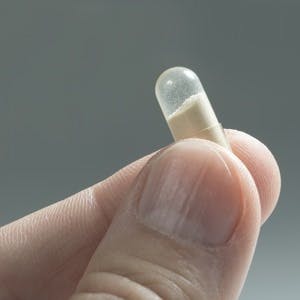Articles categorized as Irritable Bowel Syndrome Ibs
Could Probiotic Supplement Ease IBS and Anxiety?
Research now suggests that a probiotic supplement taken regularly could help psychological as well as digestive symptoms.
How to Relieve IBS with a Low FODMAP Diet
A low FODMAP diet that avoids milk sugar as well as fruits and vegetables that are easily fermented by gut bacteria can ease symptoms of IBS.
Coconut Cookies and Peppermint Oil Ease Irritable Bowel
Enteric-coated peppermint oil can calm digestive tract spasms, while coconut helps discourage diarrhea due to irritable bowel syndrome.
Show 1179: What Should You Do About Digestive Distress? (Archive)
Listen to find out when your digestive distress might signal a serious problem and when you could manage it at home with simple remedies.
Raspberry Powder to Help Diarrhea from IBS
Readers report that raspberry powder can help control chronic diarrhea due to irritable bowel syndrome. Coconut is also useful.
Will an Allergen-Free Diet Help Your Joint Pain?
One reader found that following an allergen-free diet without dairy, eggs or gluten eliminated joint pain. Will it work for you?
Can Antibiotic Help Post-Colonoscopy Problems?
One reader had persistent digestive distress following a colonoscopy. An antibiotic prescribed for something else solved the post-colonoscopy problems.
If Leaky Gut Syndrome Exists, How Can You Test for It?
Is there such a thing as leaky gut syndrome or intestinal permeability? How would you know if you were dealing with this condition? Find out about testing.
Do People Who Eat Fish Grow Old More Healthfully?
A long-running study suggests that people who eat fish and shellfish regularly are less prone to chronic disease as they age.
Does Work Email Bother You at Home?
Expecting employees to respond to work email 24/7 and on weekends and holidays increases job stress and its health risks.
Are You Worried about a Limit on Loperamide?
The FDA plans to put a limit on loperamide tablet that can be purchased at one time. How will that affect you? Let FDA Commissioner Gottlieb know.
People with IBS Worry about FDA Crackdown on Imodium
The FDA is considering restrictions on Imodium sales. For people with chronic diarrhea such as those with IBS, that is a daunting prospect.
Will Enteric-Coated Peppermint Oil Help Your Digestion?
Enteric-coated peppermint oil will do nothing for heartburn, but it has been shown to ease the symptoms of irritable bowel syndrome.
How to Improve Digestive Health with a Poop Transplant
A poop transplant that alters the disturbed microbiota of a diseased digestive tract can provide surprising relief from diarrhea, pain and other symptoms.
Is Xifaxan Helpful for IBS with Diarrhea?
The antibiotic Xifaxan can ease symptoms of IBS with diarrhea in the short term, but long-term changes to intestinal microbes could cause diarrhea later.
Irritable Bowel Symptoms Overcome by Cholesterol Med
The cholesterol-lowering medication fenofibrate unexpectedly reversed this reader's irritable bowel symptoms.
Peppermint Tea Helps Irritable Bowel Syndrome, Unproven for Inflammatory Bowel Disease
Scientific evidence supports sipping peppermint tea or taking enteric-coated peppermint oil to ease symptoms of irritable bowel syndrome.


















